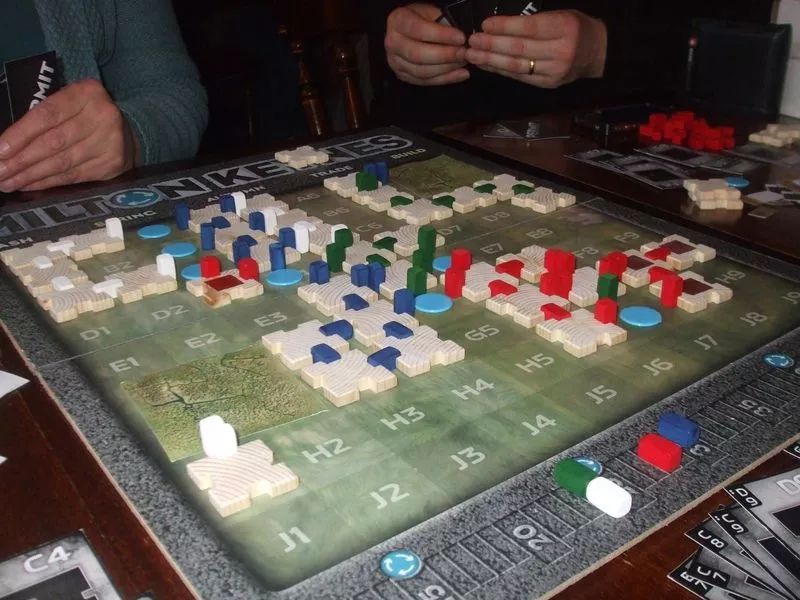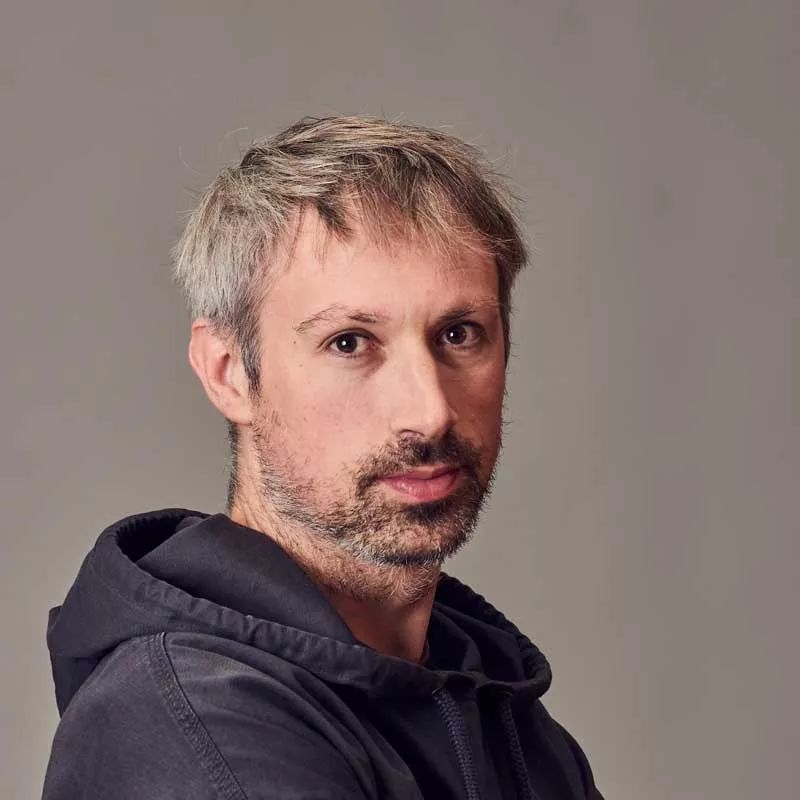Conversation Boca founder Gavin Wood: I don't want people to be slaves to tokens
In 2013, 33-year-old Gavin Wood read Vitalik's white paper and he quickly decided to help the 19-year-old to realize the great concept of Ethereum. Later, Vitalik became a familiar genius boy all over the world, and Gavin Wood's life changed.
Everyone knows Vitalik, but few people really know Gavin Wood.
Vitalik fits all the imaginations of a talented teenager, and Gavin Wood looks like a typical engineer, the story of the technology bulls you've seen countless times. It is known that the British programmer used to write the Ethereum's CTO, the technical yellow book of Ethereum, the founder of the Solidity language inventor, the founder of the Ethereum client Parity, and now created the competition as Ethereum. Opal's popular celebrity project Polkadot – then?
Asking who Gavin Wood is is actually trying to ask Ethereum to ask the earliest prototypes and ideas of the blockchain after Bitcoin.
- What kind of logic is Bitcoin “artificial bull market”?
- Reuters: UN report says North Korea attacks banks and cryptocurrency exchanges to make a profit of $2 billion
- Opinion: Where is the strength of Wal-Mart's currency?
As a creator of a world-changing product, Vitalik and Gavin Wood belong to two completely different types of people. After the 90s, Vitalik is a young man who doesn't know how to cover up. He is cautious and embarrassed on the stage. After 80s, Gavin Wood is much more familiar. His language often has a certain speech, and he is used to taking a bottle before going on stage. Beer, take the PPT's pager in one hand, and do technical evangelism while drinking.
People talk about Vitalik's idealism, praised him for being able to read multiple languages and even understand Chinese, and he is interested in his wide range of interests. From this point of view, Gavin Wood and Vitalik have some similarities.
Gavin Wood began programming at the age of 7 and designed board games with friends. He liked philosophy at university and had a doctorate in music visualization. After graduation, he taught fractal and art courses for children in a school in Italy. He not only did video games at Frontier Developments, but also designed smart lighting controllers for a nightclub in London, and also established a new voting system for the British government.
Gavin Wood speaks English, Italian, French, Spanish; likes photography, is proficient in Taekwondo, and plays snowboarding. Before interviewing the Orange Book, Gavin Wood was practicing his Chinese name "Lin Jiawen" with a small book that he took with him.

Board game designed by Gavin Wood
In short, Gavin Wood is not a typical technical engineer. Instead, we find that he may be more idealistic than Vitalik. The role of the early Ethereum CTO and the dual identity of the popular project Polkadot today gave Gavin Wood double experience of participating in two projects from 0 to 1. This also made him one of the most worthwhile technical figures in the blockchain world.
Unexpectedly, from the encounter with Ethereum, to the final departure of Ethereum, the creation of Boca and Ethereum, Gavin Wood and Vitalik are not like the typical story of the two co-founders. Gavin Wood said that his ideas have not changed since the Ethereum period. The establishment of Boca is just to realize the "correct idea" that was first thought of, and Ethereum is "just an experiment" for him.
The following is an interview with Gavin Wood in the Orange Book. Some content has been adjusted for a better reading experience.

Oral: Gavin Wood
Interview, finishing: Orange Book
my story
In a sense, writing code allows me to focus and relax. This is a way for me to live in peace with the world.
Of course, in addition to the code, there are other things in the world that are equally interesting. My Ph.D. is about music visualization. Music has always been my interest. It is an art form and a kind of "language". We can use music to talk and connect with various other media.
After graduating from college, I entered the game industry and lived a nine-to-five life. But soon I found out that this is not what I want to pursue. The work itself is not too big a problem, my relationship with my colleagues is also very good (some are still good friends now), just that state, it does not meet the life philosophy I want.
One thing I have been thinking about during this time is how to reform the governance and political system of the world.
I had previously proposed for the British Supreme Court to design a new voting system, but the end result was that the British Supreme Court did not want to change the voting system, which is a bit of a nasty. But in any case, this proposal, from a broader concept, is an Internet-based governance system. And, even if you don't have the Internet, you can participate in governance, which is similar to the governance idea of Boca's design later.
Bitcoin without national boundaries: another ability to predict the future
The turning point occurred in 2013. I saw some interesting signs in Berlin. There was a bar on the streets of Berlin that gathered a lot of artists and wanderers. The bar was experimenting with some anti-establishment principles, and people used bitcoin as a medium of trading.
The reason why society makes rules and laws is because it makes people's lives easier and makes business business easier. Fundamentally, these rules are the management of expectations of people. In general, people tend to do things that have deterministic outcomes in the future.
Without such an ability to predict the future based on current behavior, from the perspective of economics and game theory, the whole concept of being able to make decisions is not valid.
Bitcoin can form a new legal form, a more flexible, faster, borderless Internet native law. The most interesting thing is that this law is based on mathematics. If mathematics continues to exist, this law will exist.
The birth of the decentralized platform: encountering the Ethereum and leaving the Ethereum
Ethereum is an attempt based on curiosity for me, a good learning process. Although I understand the principles of Bitcoin, I never thought about developing something on Bitcoin. I don't see any sense in programming bitcoin.
Because Bitcoin cannot be copied, Ethereum can be modified. At the time, the Ethereum white paper was written in great detail, but there are still many problems that need to be optimized and improved. I spent some time developing Ethereum, I think it might be feasible, but I am not sure, the only way is to go down this road. Fortunately, everything is not too difficult. After several weeks of testing, we finally proved that Ethereum is feasible.
Ethereum is an experiment for me, a prototype of a product that verifies that the technology is feasible. Ethereum is also my school, I graduated from this school, I want to try to do more things.
In fact, the most I learned from Ethereum was not technology (the Ethereum had a research team dedicated to managing technical details), but social experience. Governance is one of them. I think that in the blockchain system, the ability to improve the system through governance is very important. This will be a revolutionary new feature, and this is exactly what Ethereum has not done.
Another thing I have been skeptical about Ethereum is that Ethereum has bound the freedom of users into nothingness. Ethereum has always promoted itself as a “centralized platform for free competition”, “You can do whatever you want to do”, but this is not the case. If you use the service of Taifang, you must bind it to it. For example, when you develop a DApp on Ethereum and need to transfer money, the user not only needs to have your token, but also must have ETH to pay the gas fee.
Ethereum has deviated from his original intention to a certain extent. People can use any token to pay the transaction fee. Ethereum does not need to be the medium of every transaction, but Vitalik refuses to do so. This means that you will be a slave to this token.
In many cases, it doesn't make sense for users to use the DApp indirectly through the ETH layer. Polkadot's goal is to give users and developers the freedom to break this economic triangle and connect directly with users and developers.
For developers, users do not need to pay for Boka miners to use your service. You also don't need to bind specific tokens or platforms. I think this should be the basic realization of any DApp development team.
The essence of Boca: an ambitious segmentable blockchain
A common misconception in the market is to compare Cosmos with Polkadot. There are many differences between the two, one of which is that Cosmos does not provide shared security. Cosmos is essentially a token exchange.
But Polkadot is actually a sharded blockchain, which is a fragmentable multi-chain, each shard can do different things, which is the essential difference between it and the transfer bridge. Of course, different token chains are allowed to send tokens to each other, which can be done by both Polkadot and Cosmos.
This reminds me of the 2014 Ethereum and the color coin. The dyed coins are keen to emphasize that they can use Fork Bitcoin to make smart contracts, and Ethereum is also a way to do smart contracts, so the application scenarios of the two are actually the same. But discerning people know that Ethereum is a completely different technology that can support more things and possibilities. Just because the two sides have an overlapping usage scenario, the party with little ambition will be very keen to emphasize this scene, ignoring the biggest difference between the two sides.
Polkadot is essentially a fragmentable blockchain, so it is an extensible blockchain. Cosmos is very different from fragmentable blockchains. On the other hand, this is why Ethereum 2.0 takes so long because it is very difficult to build a fragmentable blockchain.
The meaning of cross-chain: the ability to build a network story to become a religion
Any individual, only in the network effect, will be extremely important. For example, people will believe in the story of Genesis thousands of years ago. This story has a huge network effect, and then it will form a religion or build a country based on it. This story has become a means of connecting people.
I like philosophy very much, and I often wonder about some philosophical problems. When you look at the way philosophers communicate, philosophers actually have a set of philosophical dialects. They will argue with each other, but they don't need to agree on their views. What really matters is that they must understand what other philosophers are saying and move the debate forward.
The role of interoperability is similar. It can promote the development of network effects and allow economic growth to achieve exponential growth. Polkadot is not yet a universal interoperability solution, but it is preparing for this exponential growth. Blockchain is the first step to achieving this goal. With the blockchain, everyone can connect and interact on the blockchain, but we can't interact with people under the chain.
Each chain in the Polkadot system is closely connected to each other. It is more powerful than a stand-alone network, and you can try more things. Ethereum 2.0 hopes to do this through capacity expansion. So fundamentally, Ethereum and Boca have taken different paths to achieve their goals.
Look at the logo pattern of Boca, the sign of Bitcoin is a B, and Ethereum is an arrow. From the symbolic symbol, they are all limited. I hope that the network created has no boundaries, so the logo of Boca will not point to a single centralized thing.
In the article "Why do we need Web3," I wrote the following sentence: The Internet is like a giant baby, it is aging, but it has never grown up. What I really want to say is that the Internet already has a large number of users around the world today, but because of architectural flaws, the Internet has never really taken responsibility for what it should.
This is the ideal of Web3, the ideal of Polkadot, and my ideal.
Source: Orange Book
We will continue to update Blocking; if you have any questions or suggestions, please contact us!
Was this article helpful?
93 out of 132 found this helpful
Related articles
- Multinational privacy regulator issues a joint statement: six soul tortures against Libra
- Decentralized Network Governance: Psychological Analysis of Motivation of Node Cooperation
- Lenovo, Nokia, Anheuser-Busch InBev, etc., have joined IBM's latest blockchain project
- Exploring Zero Knowledge Proof Series | Understanding Zero Knowledge from "Simulation": Parallel Universe and Time Back
- Twitter Pickup: Bitcoin is rising because the Chinese are buying? not at all!
- Halving the spicy strip is just an appetizer, and the third halving of Bitcoin will attract the attention of countless people.
- Imagine 2030 Tucao Conference, Ethereum is hacked, BM, V gods are lying






